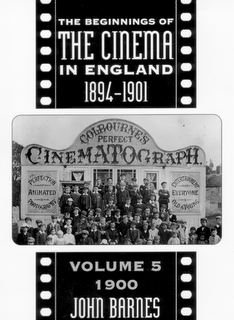 Acknowledging Blindness
Acknowledging BlindnessIn an article entitled ‘The blind spot’, F W Boreham lamented that “the things we see are as nothing compared with the things that we miss”.[1] In writing about the prevalent blindness to reality in ordinary things, Boreham chastised certain individuals who, in “luxuriating among the cowslips” failed to appreciate the beauty under their noses.[2] He also criticised those who declined “to recognise that the mud of life is jingling with jewels”.[3] In alerting readers to the human condition, Boreham was quick to admit his own blindness for, in 1928, the year when he first had occasion to wear glasses, he wrote, “I am sadly aware of a dimness of sight that no oculist can relieve”.[4]
Aversion to Artificiality
Boreham perceived that a symptom of the prevailing blindness in society was the growing popularity of artificial things. His aversion to the artificial (also a theme of Richard Jeffries)[5] was focused on shows about which he said, “very few things look their best when on exhibition”.[6] However, it was the artificiality of life portrayed by the cinema that received Boreham’s harshest criticism. Describing an evening at the cinema, sometime prior to 1915, he observed that the audience was full of admiration for the film’s lifelikeness but in Boreham’s assessment it was “a very stilted, flickery kind of affair”. Reflecting later, Boreham said, “The next day I saw the real thing .… It is a mad world truly! We go into ecstasies over the scene in the cinema; the scene as God paints it only makes us yawn”.[7]
Peril of Familiarity
An aspect of human vision that Boreham believed could be corrected was the blindness that came through familiarity. While he said of his holiday location at Wedge Bay, “The local inhabitants have never awakened to the charms of the beauty-spots around them”, he also confessed, “I saw more of London and formed a more just appreciation of its grandeurs during a brief visit to the Homeland from New Zealand than during all the years of my residence in the world’s metropolis”.[8] Boreham’s editorials on this theme aimed at recovering what the art critic, John Ruskin, described as the “innocence of the eye”.[9] In his writings, Boreham sought to take his readers back to a place or an occurrence with which they were familiar and describe it with a reality and in a way that enabled them to feel that they were seeing it for the first time.
Geoff Pound
Image: ‘A flickery kind of affair…’
[1] Boreham, Mercury, 7 February 1928.
[2] F W Boreham, The other side of the hill (London: The Epworth Press, 1917), 130.
[3] Boreham, Mercury, 6 July 1947.
[4] F W Boreham, The fiery crags (London: The Epworth Press, 1928), 251.
[5] Richard Jeffries, Field and hedgerow (London: Longmans, Green, & Co., 1892), 148.
[6] F W Boreham, Mountains in the mist (London: The Epworth Press, 1914), 141.
[7] F W Boreham, The golden milestone (London: The Epworth Press, 1915), 94.
[8] Boreham, The golden milestone, 109.
[9] John Ruskin, The genius of John Ruskin: Selections from his writings, ed. John D Rosenberg (George Allen & Unwin Ltd, 1963), 12.


